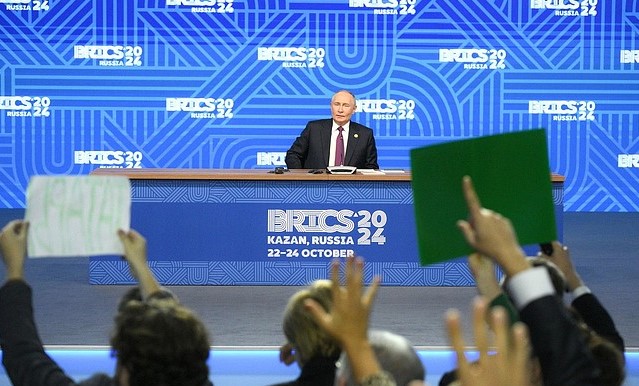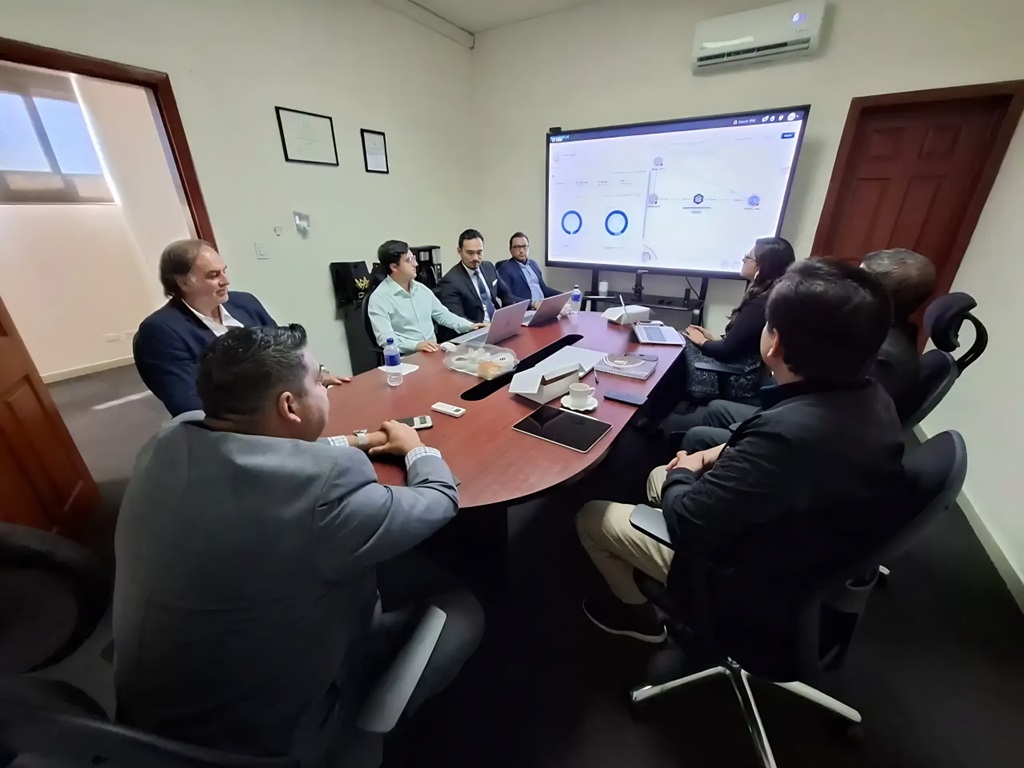Russia concluded its presidency of the BRICS alliance with important advances in the development of models to reduce dependence on the dollar, as stated by Russian Vice Foreign Minister Sergey Ryabkov during a press conference following the association’s summit in the Russian city. from Kazan. Ryabkov indicated that the country transfers to Brazil the responsibility of carrying out, from now on, de-dollarization initiatives.
The diplomat stressed that the first step is turning ideas about dedollarization into concrete actions and operating patterns. “It is clear that this area is extremely sensitive and carries risks related to illegitimate sanctions. However, there are also solutions to protect ourselves from such measures,” he said.
The proposed approach includes mutual compensation schemes that allow transactions to be carried out without the need to depend on the dollar, highlighting the idea of multilateral development. «We are convinced that the initiative has been launched; “They are not just words, but are the result of work formalized in agreements,” Ryabkov added.
The Russian Vice Foreign Minister mentioned that there are already functional systems for mutual settlements that avoid the SWIFT system that has been monopolized by the West. “These systems must not only be developed, but also integrated with each other, forming an effective network that addresses logistics and transportation challenges, especially in the insurance sector, regardless of Western mechanisms,” he explained, as spread it the TASS news agency.
Among the practical ideas that emerged during the Russian presidency there are BRICS Bridge, BRICS Clear and BRICS Reinsurancewhich have become key elements in the agreements established between the association’s leaders and specialists.
The BRICS Reinsurance proposal, for example, is to establish a reinsurance company to enable the uninterrupted shipment of key goods and commodities between member countries, while BRICS Clear, is “an initiative to complement the existing financial market infrastructure.” , as detailed BRICS Summit declarationa 43-page document, issued on Thursday, October 24, at the close of the event.
That document acknowledged that little progress had actually been made in creating an alternative payments system, which some members hope will serve to finance transactions between the BRICS countries.
However, as CriptoNoticias has reported, the de-dollarization of the group is proposed as a key objective. “Increasing the use of national currencies is a direct, clear and effective path towards de-dollarization,” Ryabkov assured, adding that the digitalization of currency also turns out to be an important goal that should be addressed in future alliance discussions.

Dedollarization: a deadlock for the BRICS?
The recent BRICS summit, held in Kazan, Russia, showed an apparent unity of a group of nations in search of a new world order, but also revealed underlying tensions that threaten its continuity. The leaders of Brazil, Russia, India, China and South Africa, along with the recently integrated Egypt, Ethiopia, Iran and the United Arab Emirates, met to express their discontent with the global power structure dominated by the United States. However, despite their attempts to appear cohesive, behind the scenes, the differences between the leaders of these countries appear to be significant and could prevent the ambitious de-dollarization agenda from advancing.
The final declaration, known as the Kazan Declaration, called for the use of local currencies in financial transactions between members, a strategy that seeks to reduce the influence of the dollar and, therefore, the power of the US. However, the path towards de-dollarization appears complicated; resistance to the idea of a head-on clash with the West is a sign of internal differences in the group, as a publication points it out from The Japan Times.
The BRICS summit brought to light a fundamental dilemma: although there is a palpable desire to reform global governance and reduce American power, the diversity of interests among members complicates efforts toward a united front. From India’s conciliatory stance, under the leadership of Prime Minister Narendra Modi, to the adversarial fervor of Putin and Xi Jinping, visions for the group’s future diverge, the Japanese publication adds.
In that sense, the task that remains, in addition to work for financial autonomythey must also do so for the internal cohesion that allows them to act jointly on an international stage.

Alternative payment systems, an urgent need
For his part, Russia’s Deputy Finance Minister, Ivan Chebeskov, said that the BRICS partner countries have enthusiastically received the proposals raised to establish an independent payments system, but he also clarified that the implementation of such modifications requires time and testing. pilot.
“Everything depends on the process of standardization and adaptation to new technologies, a considerable challenge given how entrenched the current system is,” Chebeskov explained, according to a note spread by the state agency.
The official added that the proposals are focused on modernizing international payment mechanisms, which are currently considered obsolete, expensive and ineffective.
In relation to the resistance of the collective West towards these initiatives, the vice minister argued that developed countries They try to maintain control over infrastructure and financial institutions. “This long-term approach is wrong. If we cannot grow within the Western infrastructure created, we will build our own,” he asserted.
In short, the vice minister emphasized that the transition to the new payment system will be an evolutionary process and not a revolution, presenting complementary solutions to existing ones. “We are receiving a positive response, which is reflected in the statements approved in Kazan,” Chebeskov concluded.






Leave a Reply